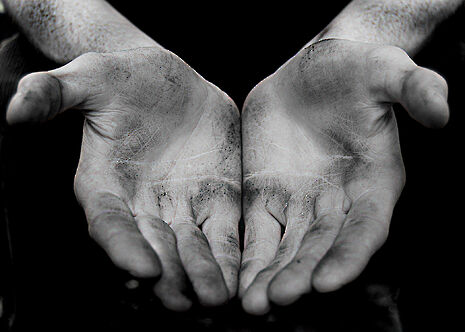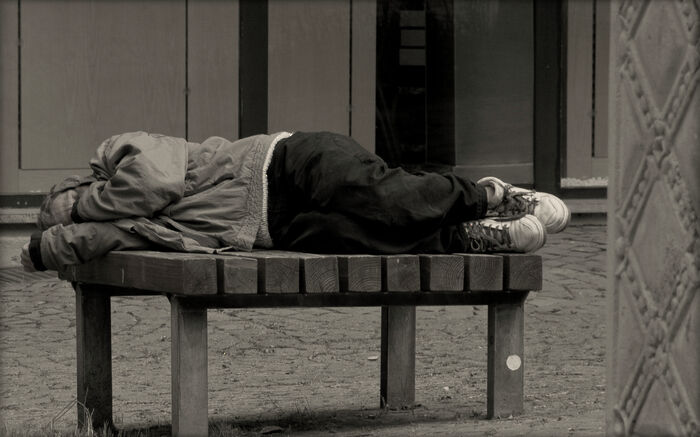To end the homelessness crisis, we first need to end the stigma
Writing on behalf of Cambridge Homeless Outreach Programme, Millie Newis explores how to humanise the issues at the heart of the city’s streets

On Tuesday, two councillors quit their local Conservative group in protest after their leader’s suggestion that homeless people be cleared from Windsor before the royal wedding in May. Council leader Simon Dudley says there’s an “epidemic” of rough sleeping in the Royal Borough of Windsor and Maidenhead. While he sees “aggressive begging and intimidation” and “bags and detritus” accumulating on the streets, others recognise fellow human beings that have fallen upon hard times.
According to Murphy James of the Windsor Homelessness Project, 40 to 50 people are without permanent residence in Windsor – an estimate that mirrors Cambridge’s homeless population. Between 2016 and 2017, rough sleeping in Cambridge more than doubled. The city has one of the highest rates of rough sleeping in England: 0.8 people per 1,000 households. It’s people like Simon Dudley that seem to forget that behind these statistics, desperate people are sleeping in doorways, bin shelters, stations and parks; trying to find solace from the elements, violence and abuse.
“For both, Jimmy’s offered not only a roof and bed, but a community”
Also on Tuesday – the same day councillors Asghar Majeed and Paul Brimacombe protested against Dudley – Sharon and Steve, and Barry from Jimmy’s night shelter, shared their experiences of being homeless in an open ‘Life on a Bench’ event. The event, hosted by the Cambridge Homeless Outreach Programme (CHOP) was a chance to see the faces behind figures of homelessness, and to give a voice to the people that might otherwise be given a second glance.
Although clichéd, Barry’s naming of Sharon and Steve as “everyday heroes” could not be more genuine. Sharon found herself homeless and jobless after returning from abroad. Despite having booked shifts, her employers said she was no longer on the work system and would have to re-apply. Sharon had lived and raised four children in Cambridge before moving abroad, but without a permanent address or dependents, she was not employable. Steve’s job also fell through: as a carer, he found himself jobless after his employer died of old age. Steve’s family were not able to put him up, so he found himself alone. He said he had “never felt so low” before being pointed to Jimmy’s.
Sharon and Steve’s stories highlighted, to use Sharon’s words, how “everybody is just one pay cheque away from being homeless”. For both, Jimmy’s offered not only a roof and bed, but a community, a support network, and a chance to feel like a human being again.
“It is time to extend this understanding and appreciation of individuality to the homeless community”
We all know the stigmas of homelessness: that it’s a choice, a drug, drink, or mental health induced problem to be moved elsewhere and out of sight. People like Sharon, Steve and Barry show that this is not the case. It is important to remember that people become homeless for “individual, not generic” reasons, says Barry, from Jimmy’s night shelter. Barry, who has been homeless himself, describes homelessness as “a mask” and a simple “category that people are placed into when they land on the streets”. In the current climate, where categories and stereotypes of individuals from all walks of life are being overthrown, it is time to extend this understanding and appreciation of individuality to the homeless community.
Barry, Sharon and Steve showed that isolation is the main problem faced by homeless individuals. As shown by Jimmy’s, isolation can be overcome by a supportive community. By understanding that “majority of individuals on the streets really don't want to be there”, and that “the individual is a person that needs support and has hopes and dreams to get off the street”.
How then, can we help? The streets of Cambridge, though bustling with thousands of daily visitors, are lonely places for those who are forced to make them their home. Busy students hurry past, averting their gaze from the sleeping bags lining our pavements, while tourists loiter, throwing the occasional judgemental glance.
“To be shelterless and alone” wrote Dickens, “to listen to the falling rain […] are dismal things – but not so dismal as the wandering up and down where shelter is, […] a houseless rejected creature.” His words are as relevant today as they were nearly two centuries ago. To see homeless people as people is key to understanding how to help. As Sharon, Steve, and Barry explained, simply stopping to ask, ‘Hello, how are you?’ can lift a person’s mood enormously.
Of course, there are also more structured ways to help. Jimmy’s provides 26 beds all year round, with provision for an extra 15 in particularly foul weather. The Cambridge Churches Homeless Project (CCHP) takes 15 more during the winter months. Wintercomfort provides learning and training along with a range of welfare. Streetbite takes food and drink those in need three times a day. These all rely on volunteers and donations to help them deliver their extraordinary services. Students continue to contribute a great deal to these projects, but there is always room for more compassion. The place to start is not by seeing the “bags and detritus”, like the council leader Simon Dudley; not even by seeing homeless people, but instead just people in need of a humanising support network
 News / Cambridge academics stand out in King’s 2026 Honours List2 January 2026
News / Cambridge academics stand out in King’s 2026 Honours List2 January 2026 Interviews / You don’t need to peak at Cambridge, says Robin Harding31 December 2025
Interviews / You don’t need to peak at Cambridge, says Robin Harding31 December 2025 Comment / What happened to men at Cambridge?31 December 2025
Comment / What happened to men at Cambridge?31 December 2025 Features / “It’s a momentary expression of rage”: reforming democracy from Cambridge4 January 2026
Features / “It’s a momentary expression of rage”: reforming democracy from Cambridge4 January 2026 News / Varsity’s biggest stories of 202531 December 2025
News / Varsity’s biggest stories of 202531 December 2025










